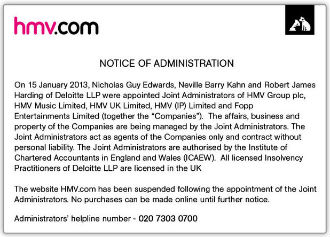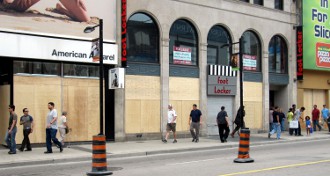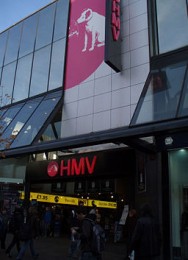 Music retailer HMV’s administrators, Deloitte, have announced that a further 37 stores will be shut down since it went to administration in January.
Music retailer HMV’s administrators, Deloitte, have announced that a further 37 stores will be shut down since it went to administration in January.
Administrator Nick Edwards told the BBC that shutting the 37 stores has been taken to “enhance the prospects of the restructured business continuing as a going concern”. Overall HMV plans to shut 103 of its 219 stores. The current round of closures sees HMV pulling out of Heathrow – sad news for weary airport-shufflers waiting for a flight.
Despite the trouble it is in, HMV managed to sign agreements with suppliers to guarantee new stock will appear in stores.
HMV was the latest casualty on the UK’s troubled high street. It going bust was not an enormous surprise in the wake of increased online competition which do not have to cover costs such as high rents and are largely able to undercut traditional retailers on price. Coupled with an increasing digital ecosystem for consumer content, HMV has been in trouble for years.
The following stores will close: Ashford, Basildon, Bolton, Cheltenham, East Kilbride, Enfield, Folkestone, Glasgow Argyle, Gloucester, Grimsby, Hatfield Galleria, Heathrow Terminal 5 – Departure Level, Heathrow Terminal 1, Heathrow Terminal 3, Heathrow Terminal 4, Hemel Hempstead, High Wycombe, Isle of Wight, Lancaster, Leadenhall, Mansfield, Middlesbrough, Newbury, Newcastle Silverlink, Newport, Nuneaton, Redditch, Salisbury, Scarborough, Southport, Stafford, Staines, Stockport, Swindon, Taunton, Torquay and Woking.
A recent report from Local Data Company revealed the extent shut shops are making themselves known on the high street, with empty stores accounting for nearly 15 percent of retail space across the country this December.








